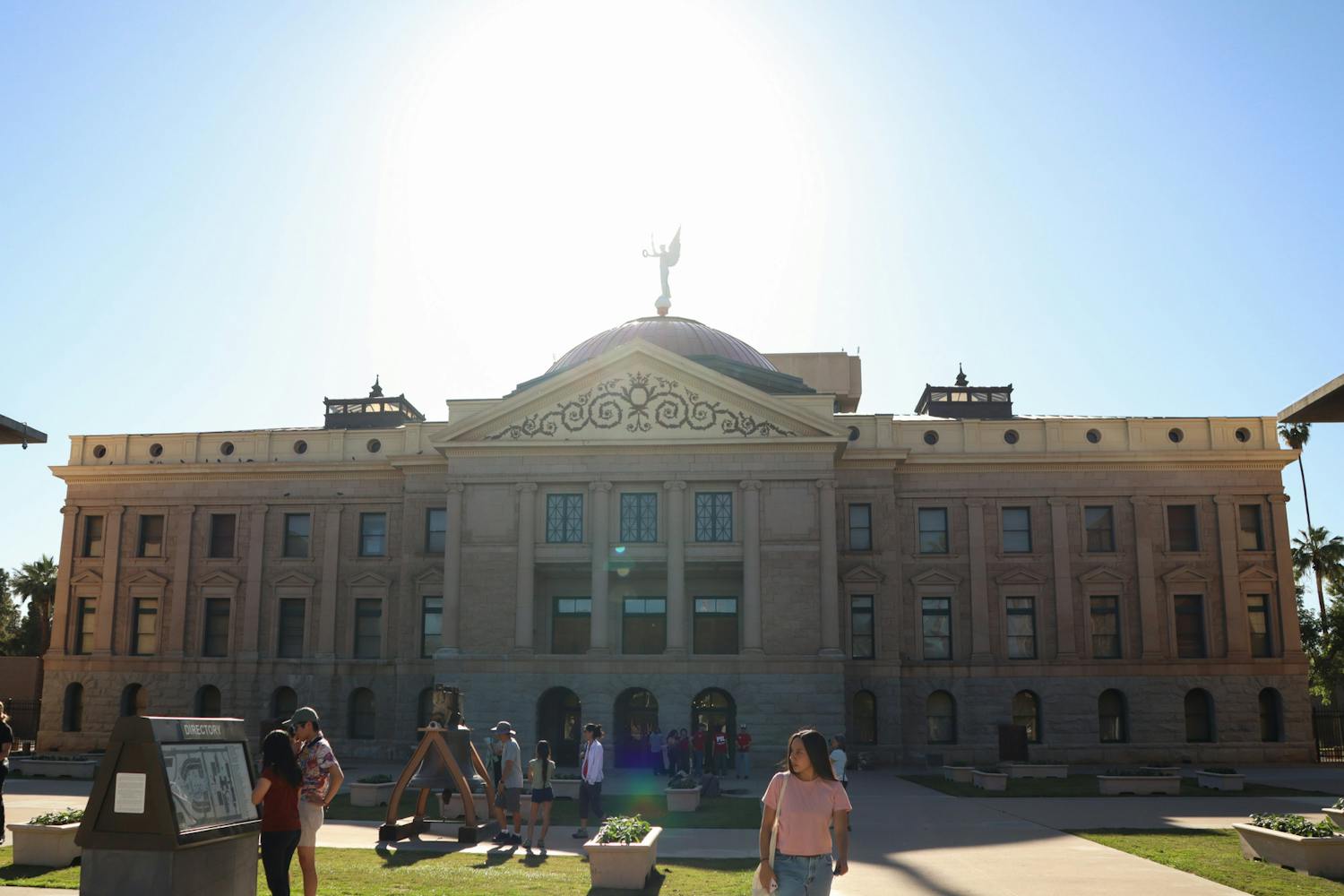The commemoration of the life and times of influential civil rights activist Cesar Chavez began Monday in the Education Lecture Hall as veterans of his movement, faculty and students came together to discuss the meaning of Chavez’s work.
The event was held at the Tempe campus and featured Matthew Garcia, director of the School of Historical, Philosophical and Religious Studies,and Pulitzer prize-winning author and professor Miriam Pawel.
Pawel and Garcia have written books on Chavez and discussed the insights they found in the research for their writings during the lecture.
“Cesar Chavez is probably the most iconic figure in Mexican-American history,” Garcia said.“It’s very important for students at (ASU) and basically students of Arizona to understand the role that Cesar Chavez played in bringing farm worker justice to the people.”
It is important that Latino ASU students are aware of Chavez and his activism so they can raise their consciousness about their history, Garcia said.
While many historians overlook the details of Chavez and his activism, Garcia dove deeper to find new revelations that paint a better picture of the man and his work.
“The things that Cesar tried to achieve, he didn’t fully achieve them,” he said.“This is a full exploration of the success and shortcomings of the man and the movement, so that we can get closer to farm worker justice today.”
Cesar was incredibly effective in creating rights for farm workers in the past, but today many organizations in the farm industry are reverting back to their old ways, Garcia added.
“In California, there’s not a grape farmer that works under contract,” he said.“Conditions are close to slavery.”
Pawel agreed with Garcia's statements. However, her message to the audience was to make it clear that Chavez was not a perfect individual.
“He’s a really complicated and flawed person just like everyone else,” she said.“Heroes have flaws too, and those need to be studied.”
Many historians will not reach past the surface of the story because they don’t want to tarnish the legacy of such an important figure, Pawel said.
While this lecture was open for discussion and debate, Tuesday's events are put into place to remember the importance of Chavez and his work.
They include a screening and discussion of the film “Cesar Chavez” and a private gathering of farm worker veterans at Santa Rita Hall in downtown Phoenix, a location where Chavez famously held one of his fasts in the early 1970’s.
“Having a community was always something that (Chavez) felt visionary about,” Pawel said.
The gathering will also include Gilbert Padilla, the unsung hero of the farm workers movement.He played a huge part in organizing the different racial and ethnic groups of the boycott.
Beatriz Kravetz, manager of marketing and communications at the School of Historical, Philosophical, and Religious Studies, said the magnitude of this type of private gathering is enormous.
“We’re going to have seven of the organizing members who worked alongside Chavez there tomorrow morning,” she said. “It is quite a historic moment.”
Reach the reporter at jhgolds2@asu.edu or follow him on Twitter @mister_jgold



